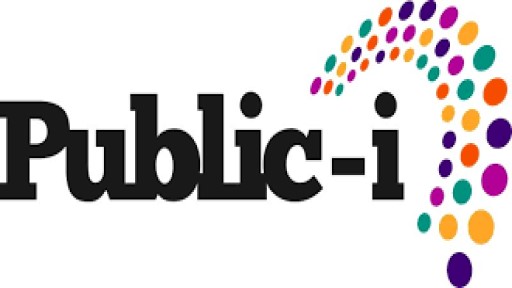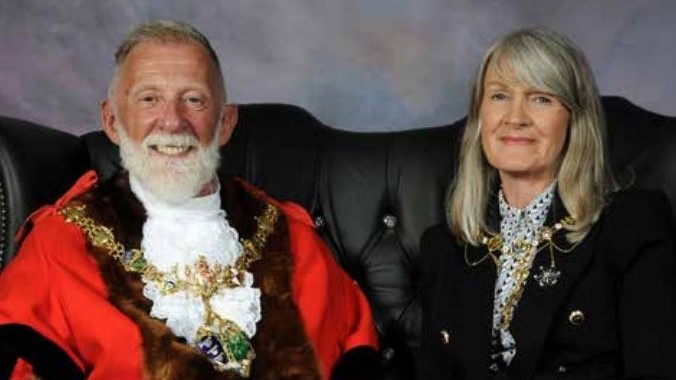Agenda and draft minutes
Venue: Town Hall, Moorgate Street, Rotherham. S60 2TH
Contact: Debbie Pons, Principal Democratic Services Officer
| No. | Item |
|---|---|
|
Minutes of the previous meeting held on 18th December, 2013 Minutes: Consideration was given to the minutes of the previous meeting of the Audit Committee held on 18th December, 2013.
Resolved:- That the minutes of the previous meeting be approved as a correct record for signature by the Chairman. |
|
|
KPMG Grants Report 2012/13 Additional documents: Minutes: Consideration was given to a report presented by Stuart Booth, Director of Finance, and a representative of KPMG, which advised the Audit Committee of the matters arising from the external audit of the Council’s 2012/13 government grants and returns.
The report provided a summary of KPMG’s key findings from the certification work they have carried out in 2012/13.
The main findings were:-
· KPMG were required to audit five claims and returns in 2012/13 with an aggregate value of £208 million and issued a qualification certificate for one return and unqualified certificates for the remaining four grants and returns.
The Housing and Council Tax Benefit claim was qualified for four separate issues, two of which have no impact on the subsidy, one which was awaiting a response from the system suppliers and one qualification issue which could reduce subsidy entitlement by £4k - this was dependent on the conclusion reached by the Department of Work and Pensions (DWP). Independent to this was a small adjustment to reduce subsidy entitlement by £4k which represents 0.004% of the claim value (£112m).
KPMG have commented that this grant was a very complex and high value grant and the relatively low number and value of amendments/qualification issues represented good performance at preparing this grant claim relative to other local authorities.
· The Council had good arrangements in place to ensure the efficient and effective preparation and submission of claims and returns and which supported the audit process. In particular, working papers were of a good standard and officers responded promptly to audit queries.
These positive findings demonstrated that the Council continued to maintain the high standard achieved in recent years.
Keeping audit fees at this low level is a direct result of this Council continuing to prepare substantially accurate and complete claims within agreed timeframes and with good supporting working papers. This enables KPMG to place assurance on the Council’s arrangements and therefore keep the audit fees for carrying out their grant certification work to a minimum.
The Audit Committee sought clarification on the nature of the qualification certificate, the sampling techniques used by KMPG and the nature of some of the detected errors.
Resolved:- (1) That the external auditor’s report be noted.
(2) That the sustained good performance of the Council in both preparing and submitting its 2012/13 grant claims and returns and reduced fees for carrying out grant certification work be noted. |
|
|
Minutes: Consideration was given to a report presented by Colin Earl, Director of Audit and Asset Management, which provided a summary of Internal Audit work and performance for the nine months ending 31st December 2013 and showed that the service continued to perform at a high level across all indicators. One piece of work undertaken had led to the recovery of £20,000 on behalf of the Council.
Like many services within the Council, Internal Audit was diminishing in size. However, by using a risk based approach to planning and efficient management of resources, it was expected to be able to fulfil its minimum statutory responsibilities to give an opinion on the Council’s internal control environment and to complete the work on fundamental accounting systems expected by the external auditor for the 2013/14 financial year.
Based upon the work undertaken in the period, Internal Audit were able to confirm that the Council’s control environment was adequate and was operating satisfactorily.
Further information was provided on performance against a number of indicators which was slightly below for completing audits within planned time due to staff sickness.
Reference was also made to the audit reports and recommendations from planned work which showed there were opportunities to strengthen arrangements in some areas.
A summary of key service developments during this period was also provided, which highlighted that the service had secured some income generating work following a request from Wingfield Academy.
The Audit Committee were pleased to see that the work of Internal Audit was incredibly consistent, but sought clarification on the circumstances for responsive work requests and the recommended actions set out in the report.
Resolved:- (1) That the performance of the Internal Audit Service during the period be noted.
(2) That the key issues arising from the work done in the period be noted. |
|
|
Prudential Indicators and Treasury Management and Investment Strategy 2014/15 to 2016/17 Minutes: Consideration was given to a report presented by Derek Gaffney, Chief Accountant, which detailed that, in accordance with the Prudential Code for Capital Finance, the Secretary of State’s Guidance on Local Government Investments, the CIPFA Code of Practice for Treasury Management in Local Authorities and with Council policy, the Director of Finance was required, prior to the commencement of each financial year to seek the approval of the Council to the following:-
· The Prudential Indicators and Limits for 2014/15 to 2016/17. · A Minimum Revenue Provision (MRP) Statement which sets out the Council’s policy on Minimum Revenue Provision. · An Annual Treasury Management Strategy in accordance with the CIPFA Code of Practice on Treasury Management including the Authorised Limit. · An Investment Strategy in accordance with the Department for Communities and Local Government (CLG) investment guidance.
Following the events of October 2008 and in light of the current and on-going economic and financial climate, the Director of Finance took a series of actions to evaluate the Council’s Investment Strategy and manage the treasury management function.
The Council’s investment policy’s continuing primary governing principle was the security of its investments, although yield or return on investments was also a consideration.
The revised operational guidelines enhanced the weighting towards ‘security’ even further at the expense of yield or return. Although seeking to minimise investment default risk, it did not eliminate it. Eliminating risk altogether was only possible if the Council only invested any surplus funds with the Bank of England’s Debt Management Office (DMO).
The Council continued to operate the treasury management guidelines well within the boundaries set by the approved selection criteria so as to minimise the risks inherent in operating a treasury management function during volatile and adverse economic and financial conditions. To this end, the Council has continued to invest any surplus funds primarily with the Bank of England’s Debt Management Office.
In addition, investment levels over the last twelve months remain low as market conditions still dictated that it continued to be prudent to defer borrowing plans and to fund on-going capital commitments through the use of the Council’s internal cash-backed resources.
Actual returns on investment opportunities remain subdued when compared to previous years but have been effectively and prudently managed by significantly reducing expected capital financing costs by delaying borrowing plans. This enabled the Council to stay within its capital financing budget cash limit and for budget savings to be put forward in support of both the Council’s 2013/14 and 2014/15 revenue budget. This was a significant achievement given the difficult economic and financial conditions prevailing throughout the current financial year.
The Council’s counterparty list for investments, with whom the Council did business, used the criteria as set out in the report and provided the Council with the opportunity to maximise security of any invested funds by allowing all funds to be placed with the DMO and UK Single Tier and County Councils and reducing the maximum level and time of investments that could ... view the full minutes text for item 26. |

 PDF 50 KB
PDF 50 KB


